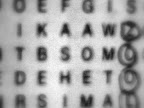Jackson Diehl, you never cease to amaze me
 I try to remember to not underestimate the Washington Post editorial page when it comes to Latin America. When Augusto Pinochet died in 2006, they celebrated him as a hero. When Hugo Chavez lost the referendum in 2007 on eliminating term-limits and a host of other measures, and immediately conceded defeat, the Post struck back a year later with "reliable sources" saying that "the president conceded only after he was told by military commanders that they would not put down protests against a falsified result" -- a claim supported by no evidence. On Colombia, they are virulently pro-Uribe, despite continued murders of trade unionists in the country (one of the highest rates in the world) and Uribe's government still refusing to seriously investigate the vast majority of those murders. Yet they plow on, more and more desperately, in what has now become deputy editorial page editor Jackson Diehl's bizarre public fight against Jose Miguel Vivanco of Human Rights Watch (Jackson, give up -- the Democrats on the hill are not being fooled).
I try to remember to not underestimate the Washington Post editorial page when it comes to Latin America. When Augusto Pinochet died in 2006, they celebrated him as a hero. When Hugo Chavez lost the referendum in 2007 on eliminating term-limits and a host of other measures, and immediately conceded defeat, the Post struck back a year later with "reliable sources" saying that "the president conceded only after he was told by military commanders that they would not put down protests against a falsified result" -- a claim supported by no evidence. On Colombia, they are virulently pro-Uribe, despite continued murders of trade unionists in the country (one of the highest rates in the world) and Uribe's government still refusing to seriously investigate the vast majority of those murders. Yet they plow on, more and more desperately, in what has now become deputy editorial page editor Jackson Diehl's bizarre public fight against Jose Miguel Vivanco of Human Rights Watch (Jackson, give up -- the Democrats on the hill are not being fooled).On Saturday, the Post editorialized on the FMLN's election victory in El Salvador. Here we go.
 Some quick history: the United States armed the right wing government in El Salvador's brutal civil war (the FMLN being the leftist side). Government soldiers brutally murdered thousands of civilians in an effort to terrorize the population. Thanks largely to U.S. help, tens of thousands of people were killed, some in government massacres of civilian towns. After the war ended, it was U.S. policy to work against the FMLN ever being elected to power (this changed with the Obama administration).
Some quick history: the United States armed the right wing government in El Salvador's brutal civil war (the FMLN being the leftist side). Government soldiers brutally murdered thousands of civilians in an effort to terrorize the population. Thanks largely to U.S. help, tens of thousands of people were killed, some in government massacres of civilian towns. After the war ended, it was U.S. policy to work against the FMLN ever being elected to power (this changed with the Obama administration).Anyhow, how would the Post, which does not like the FMLN, reflect on the its victory? "Victory in El Salvador" is the headline. What? Have they switched sides?! No. See, it's a victory for liberal democracy and vindication for the U.S., actually.
If Mr. Funes as well as the election's losers now respect the rule of law, the result could be the consolidation of the political system the United States was aiming for when it intervened in El Salvador's civil war during the 1980s. At the time, the goal of a successful Salvadoran democracy was dismissed as a mission impossible, just as some now say democracy is unattainable in Iraq and Afghanistan.
And the Obama Administration, the editorial concludes,
"should also seek to cooperate with a government that has the potential to complete a victory for Latin American democracy -- and U.S. foreign policy."
Borev.net has a great summary of the whole editorial:
"Praise be to God that we armed one side of El Salvador's brutal civil war, needlessly extending it and intensifying the body count for many years, otherwise our sworn enemies, the FMLN, would never have been elected to power twenty years later. This is a tremendous victory for the United States, and a crushing defeat for Hugo Chavez. The Salvadoran people should be forever grateful to us for our benevolent love."


0 Comments:
Post a Comment
<< Home